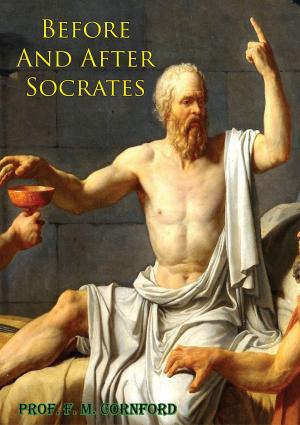| Author: | Sir Richard W. Livingstone | ISBN: | 9781787203747 |
| Publisher: | Hauraki Publishing | Publication: | February 7, 2017 |
| Imprint: | Hauraki Publishing | Language: | English |
| Author: | Sir Richard W. Livingstone |
| ISBN: | 9781787203747 |
| Publisher: | Hauraki Publishing |
| Publication: | February 7, 2017 |
| Imprint: | Hauraki Publishing |
| Language: | English |
First published in 1923, this book by Sir Richard Winn Livingstone “is intended for those who know no Greek, but wish to form some idea of its great writers and of what they wrote. It is meant for the ordinary educated reader, as well as for pupils at the universities and in the upper forms of schools, who will never learn the language but need not be left in total ignorance of the literature and thought of Greece; and it may be used to give the weaker student, while he struggles with individual authors, a view of the literature as a whole and an idea of the doors which knowledge of the language will open to him. It is not a book about the Greeks: such books can be at best pale reflections of the central fire at which they are lit. It consists of selections from the greatest Greek writers, with such a sketch of their lives and works as may give an idea of what they were and did.
“But it is not a mere anthology of selections. I have tried, as far as possible, to piece the passages together in a continuous whole, and, further, to trace the growth of Greek literature, and indicate the historical background in which it is set. Anyone who reads these pages will not merely read famous or typical extracts from the great Greek writers, but will also follow in outline the most important part of that vast intellectual development which started with Homer and outlasted the Roman empire.”
Richly illustrated throughout.
First published in 1923, this book by Sir Richard Winn Livingstone “is intended for those who know no Greek, but wish to form some idea of its great writers and of what they wrote. It is meant for the ordinary educated reader, as well as for pupils at the universities and in the upper forms of schools, who will never learn the language but need not be left in total ignorance of the literature and thought of Greece; and it may be used to give the weaker student, while he struggles with individual authors, a view of the literature as a whole and an idea of the doors which knowledge of the language will open to him. It is not a book about the Greeks: such books can be at best pale reflections of the central fire at which they are lit. It consists of selections from the greatest Greek writers, with such a sketch of their lives and works as may give an idea of what they were and did.
“But it is not a mere anthology of selections. I have tried, as far as possible, to piece the passages together in a continuous whole, and, further, to trace the growth of Greek literature, and indicate the historical background in which it is set. Anyone who reads these pages will not merely read famous or typical extracts from the great Greek writers, but will also follow in outline the most important part of that vast intellectual development which started with Homer and outlasted the Roman empire.”
Richly illustrated throughout.















